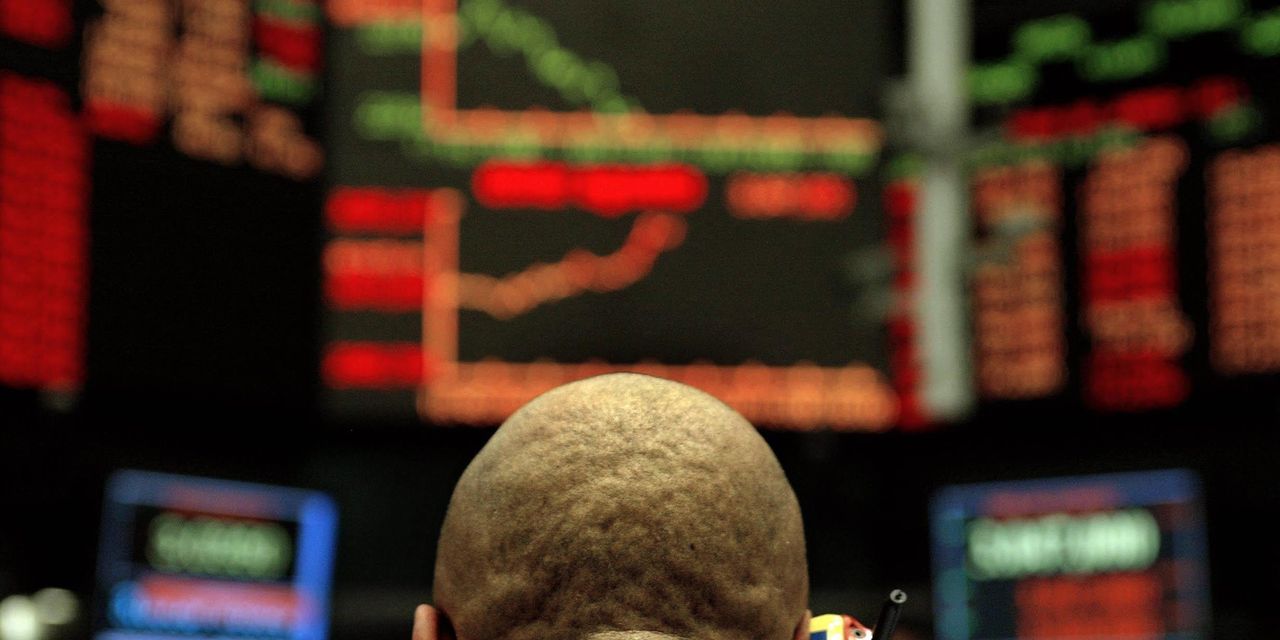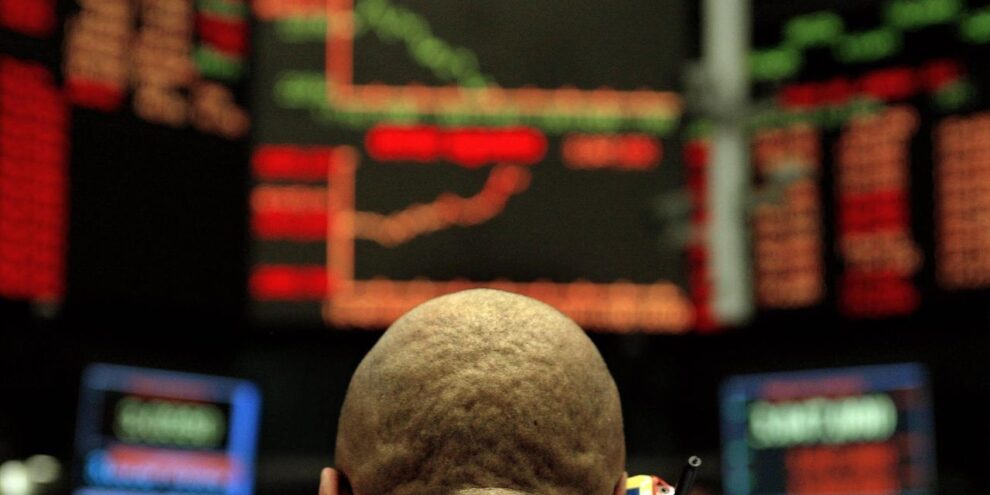
Every year around this time, two powerful forces conspire to artificially suppress stock prices — and create bargains: Lust and vanity.
You can take advantage of this situation.
As for the first force — the lust for profits — this is when individual investors dump losers to create tax losses to offset gains. With the S&P 500 Index SPX, +0.62% up 23% this year, a lot of investors have plenty of gains to offset.
The second force — vanity — has fund managers putting “window dressing” on their portfolios to get out of losers so they don’t have to show them in annual reports, points out Bruce Kaser, editor of the Cabot Turnaround Letter.
To find the bargains created by this selling pressure, I looked at S&P 500, Nasdaq COMP, +0.85% and Dow Jones Industrial Average DJIA, +0.55% stocks down more than 20% this year or from their highs. Then I favored names with the insider buying patterns I look for to identify potential winners for my stock letter Brush Up on Stocks (the link is in the bio below this column).
Here are five that fit the bill.
With one exception, I favored smaller names where the insider signal has more meaning, and where lower liquidity might contribute to bigger year-end selling pressure.
Callaway Golf
Sector: Golf equipment and apparel
Market cap: $5 billion
The damage: Up 8% year to date (YTD) but down 31% from 2021 high (as of Dec. 20)
Tiger Woods’ rebound against all odds will inspire many mere humans to rekindle their interest in golf. That will boost demand for Callaway’s ELY, -0.04% equipment and apparel sold under the Callaway, Odyssey, Jack Wolfskin and TravisMathew brands. Callaway also owns Topgolf, which runs popular golf courses that also offer high tech practice bays, bars and restaurants.
Callaway posted 80% sales growth in early November. Most of that came from the purchase of Topgolf last March. But the company did raise guidance slightly for the year, which was bullish. Then came Omicron. That’s hurt the stock, because a lot of the recent revenue strength comes from Topgolf. Covid fears will hurt Topgolf’s bar, restaurant and corporate event business.
CEO Chip Brewer is bullish about the long term. “I hope the number one takeaway from today’s call is the upside we are seeing on the long run earnings potential of this business,” he said in the November earnings call.
I normally discount bullish management commentary like this. I’ve never met a management team that wasn’t optimistic. It’s part of the job. But CEO bullishness is actually believable when it’s backed up with real money, and that’s what we have here. Brewer and CFO Brian Lynch bought $489,000 worth of stock at just under $26 a few weeks ago. Nice signal.
Nordstrom
Sector: Retail
Market cap: $3.3 billion
The damage: Down 35% YTD and 56% from 2021 high
Nordstrom JWN, +2.21% posted impressive 18% sales growth for the third quarter on Nov. 23, but earnings missed by 31%, coming in at 39 cents a share. The stock gapped down sharply, and then continued lower in December as Omicron heightened worries about retailers.
Results were hurt by cost management and supply chain issues, and weakness in its Nordstrom Rack off-price division, where investors had hoped for continued robust growth. On the bright side, the company has a strong brand and balance sheet, and a management team that can recover from the fumble, says Kaser of the Cabot Turnaround Letter. Director Bradley Tilden agrees. He just bought $468,000 worth of stock at $21.27, a big enough purchase to serve as a valid insider signal for me.
DocuSign
Sector: Software
Market cap: $30.5 billion
The damage: Down 30% YTD and 51% from 2021 high
It’s pretty tough to do anything in business these days without running into DocuSign DOCU, +2.05% agreements that you sign and transmit electronically.
Despite DocuSign’s dominance in this space, its stock blew up in early December when the company posted 28% growth in billings, well below 34% guidance. The problem: DocuSign’s business got a great boost from the pandemic, which is now wearing off.
Still, there is plenty of room for growth ahead. Few people want to shift back to hard-copy agreements. CEO Dan Springer estimates the market is worth $50 billion a year, and he says DocuSign is still in the early days of taking share since digital transformation “remains a high priority” for organizations worldwide. “Even as the pandemic subsides and people begin to return to the office, they are not returning to paper,” he says.
Springer backs up his bullish commentary with a huge $5 million purchase, up to $149 a share. To me, that makes his bullish claims more believable.
Everbridge
Sector: Software
Market cap: $3.8 billion
The damage: Down 54% YTD and 61% from 2021 high
Everbridge EVBG, -0.73% offers software that helps governments, schools and private companies including Goldman Sachs GS, +0.71%, Microsoft MSFT, +0.45% and Starbucks SBUX, +0.56% deal with emergencies like active shooters, terrorist attacks or severe weather. The software helps managers communicate with employees, assess risks, locate responders and track progress on response plans.
Everbridge beat third-quarter estimates in early November with 36% sales growth, and it raised guidance. Its customer count grew 10%. But investors weren’t impressed. The stock gapped down on the news and kept falling. Then in early December the company announced CEO David Meredith is resigning, and the stock hit the skids again. Not even celebrity PR rep William Shatner could combat the Vulcan death grip of negativity.
But insiders are coming to the rescue. A cluster of directors recently bought $1.5 million worth of stock at prices up to $67. The cluster buy and purchase size are two clues I look for to tell me that insider buying is more than just fluff. Insiders challenging extreme market negativity is also a nice dynamic. In my experience, insiders often win these standoffs.
HealthEquity
Sector: Cloud services
Market cap: $3.4 billion
The damage: Down 42% YTD and 57% from 2021 high
HealthEquity HQY, +2.00% offers cloud-based platforms that help customers navigate the thickets of health insurance and manage health savings accounts (HSAs) and other “consumer-directed benefits” like flexible spending accounts.
HealthEquity’s stock was already down for the year in early December when it announced a slight decline in third-quarter revenue, so shares got hit even harder. The culprit: Weak sales in consumer-directed benefits. But HSA membership grew 14% to 6.2 million, and HSA assets grew 32% to $16.4 billion. In short, the quarter wasn’t all bad, and the HSA trend suggests the long-term story is still intact, says Baird analyst Mark S. Marcon, who has a $53 price target on the name.
Insiders agree. A cluster of three bought $1.7 million worth of stock on the weakness in December at around $40 to $43 a share. Since 2010, HealthEquity has grown its HSA market share to 17% from 4%, which also suggests long-term momentum in the business.
Michael Brush is a columnist for MarketWatch. At the time of publication, Brush owned DOCU. Brush is editor of the stock newsletter Brush Up on Stocks. Follow him on Twitter @mbrushstocks.








